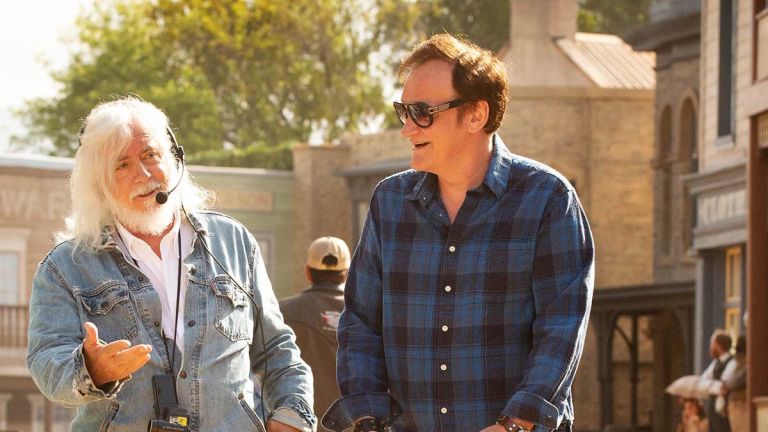Quentin Tarantino Still Wants to Retire Since Most Directors’ Last Films Are ‘Lousy’
Quentin Tarantino is still determined to retire and become a novelist, noting most directors’ final efforts are a pale shadow of previously seen talent.

From video store clerk to eventual New York Times bestseller. It makes for quite the trajectory, eh?
That’s still clearly Quentin Tarantino’s thinking too. The mercurial and celebrated filmmaker behind such modern classics as Pulp Fiction and Inglourious Basterds has teased for years that he looks forward to the day he can retire from filmmaking and leave his filmography at an allegedly perfect 10 films. He’s been discussing it since at least Django Unchained, and as he’s approached that mythical “tenth” film (he counts both volumes of Kill Bill as one movie), his opinion hasn’t changed on the matter. In fact, in a new interview with Pure Cinema Podcast (via Collider), Tarantino sounded audibly thrilled about the idea of settling down and being a family man author.
“Most directors have horrible last movies,” Tarantino said on the audio interview. “Usually their worst movies are their last movies. That’s the case for most of the Golden Age directors that ended up making their last movies in the late ’60s and the ’70s, then that ended up being the case for most of the New Hollywood directors who made their last movies in the late ’80s and the ’90s…. So to actually end your career on a decent movie is rare. To end it with, like, a good movie is kind of phenomenal. … I mean, most directors’ last films are fucking lousy.”
There is obviously some truth to his statement. Howard Hawks, a filmmaker Tarantino has cited throughout his career as a major inspiration, made classics like His Girl Friday (1940) Bringing Up Baby (1938), and The Big Sleep (1946) in his heyday. Some of his final films? Red Line 7000 (1965) and Rio Lobo (1970). Alfred Hitchcock went from making the greatest thrillers of all time to ending on things like Torn Curtain (1966) and Family Plot (1976). Stanley Donen went from helming Singin’ in the Rain (1952) and Seven Brides and Seven Brothers (1954) to Blame it On Rio (1984) and an episode of Moonlighting.
So it’s easy to understand where Tarantino is coming from. However, it’s worth noting that filmmakers can have late in career flourishes. It’s therefore interesting he mentioned much of the “New Hollywood” generation retired by the 1990s, when filmmakers like Martin Scorsese and Steven Spielberg are still trucking. Sure, one might wonder if either man will ever make something as zeitgeist-grabbing again as a Taxi Driver and Goodfellas, or Jaws and Schindler’s List. But each has had successes late in life, including the sprawling The Irishman, which feels like a denouement on Scorsese’s entire career—or the more popular The Wolf of Wall Street, which was a bonafide hit—or Spielberg’s own still intriguing historical dramas like Lincoln and The Post. A comedic contemporary who started out in the New Hollywood era was still winning screenplay Oscars only 10 years ago while in his 70s and under heavy public scrutiny.
Nonetheless, Tarantino has been adamant about changing his life for some time. While chatting with Rolling Stone last year, he even mused about how exciting it would be to become a novelist and “man of letters.”
“I kind of feel this is the time for the third act [of my life],” Tarantino said, “to just lean a little bit more into the literary, which would be good as a new father, as a new husband… I wouldn’t be grabbing my family and yanking them to Germany or Sri Lanka or wherever the next story takes place. I can be a little bit more of a homebody, and become a little bit more of a man of letters.”
So Tarantino, the novelist is looking increasingly like a reality. That said, Once Upon a Time in Hollywood was a hell of a penultimate effort. He’s even called it the “climax” to his career. So let’s see how the epilogue plays out before closing the book for good.
